|
I’m talking tomorrow briefly in the online Reiki healing summit about how Reiki was so beneficial for me in terms of pain relief when I was unwell with back pain caused by what we call a “slipped” or herniated disc (actually I had three slipped discs, one which required surgery).
In fact it was so helpful to me that it was the turning point which made me take Reiki so much more seriously and make it part of my daily life. Imagine how pleased I was to read the results of some very recent and positive research which looked at Reiki for the pain caused by this condition. Published earlier this year, researchers in Iran compared Reiki to physiotherapy and drug therapy to assess how well each treated the pain and improved patients’ ability to function in daily life. They conducted a clinical trial where they randomised 60 patients into one of three groups:
The study participants had no prior experience of receiving an energy therapy. All groups were judged to be similar in terms of their levels of pain at the start to the trial and in other characteristics. The Reiki group received 3 x 15-minute distant Reiki sessions on three consecutive days. The Physiotherapy group received 7 – 10 sessions of personalised physiotherapy of between 60 and 90 minutes each. The results showed that the Reiki plus medication reduced the severity of back pain and improved the level of activities amongst participants to a greater degree than either physiotherapy with medication or medication alone. The researchers concluded that Reiki is a more cost-effective and faster treatment method than physiotherapy whilst being safe with no known side effects. Wow, this all sounds very positive and encouraging, but it is important to remember that this is only a small trial. Academics appraising this trial would also point out that the trial was not “blinded”. This means that everyone in the group knew what treatment they were receiving - so it is possible that some of the effects felt in the Reiki group were due to positive expectation. No details are given as to how patients were randomised, so we don’t know how effective this was either. But… it is still a good result. What it means for us is that there is yet another small study which again indicates that Reiki may have value for pain relief, however it is not strong enough evidence for us to make claims about pain relief on our websites or other marketing material. We can say however that there is evidence from some small studies which points to the effectiveness of Reiki in the area of pain relief. And of course, we shouldn't fall into the trap of discounting physiotherapy! This is a long standing and proven treatment. It has important benefits, not only in terms of pain relief but also in strengthening muscles, improving condition and reducing the chances of recurring back issues. So Reiki is complementary – it is such a great tool for us to have in our self-care toolbox. It’s something I love using and sharing with others too. How lovely to have another small study to support its value! You can read the full study here: https://www.ncbi.nlm.nih.gov/pmc/articles/PMC5871054/ Reference: Jahantiqu, F et. al. (2018) “Effects of reiki Versus Physiotherapy on Relieving Lower Back Pain and Improving Activities of Daily Living of Patients With Intervertebral Disc Hernia”, Journal of Evidence-Based Integrative Medicine, Vol. 23: 1-5
0 Comments
I was quite saddened recently when I spotted a rather silly article from El País. It went under the title: “Alarm over appeal of pseudo-therapies in Spain - Experts warn of serious consequences if authorities do not take action to counter the growing popularity of treatments like reiki”. It highlights a paragraph in bold which states that Reiki is “simply a trick”. I haven’t seen an article like this for quite a while, one that attacks “pseudo-scientific” therapies and warns of the “dire consequences” for using them. It reports some research done in Spain about attitudes to complementary therapy amongst the general public. Apparently as part of a survey in Spain, people were asked questions “on pseudo-medicine such as homeopathy and reiki for the first time”. The results have been seized upon by the pro-science movement who are concerned that there is confusion amongst the Spanish public about the distinction between conventional and complementary therapy. In the article, Jeronimo Fernandez, Head of the Observatory against Pseudoscience from the Organization of Medical Colleges is quoted as saying: “False information and lack of knowledge – it all gets mixed up. So practices like yoga that truly promotes well-being gets confused with reiki which is simply a trick,” But if you read the article, you’ll see that it mixes together homeopathy and reiki and then simply uses its criticisms of hemopathy as evidence against Reiki. There is no real discussion about reiki or the evidence surrounding it. It uses the banner of science to attack Reiki, whilst being completely unscientific – it’s astounding. Come on El País, we expect better than this! In criticising homeopathy (which they describe as a pseudo-therapy whose efficacy has been debunked) the article shares a concern that people could be buying ineffective remedies “People don’t realize what scientific trials entail and that medicines have to prove they are effective.” It is certainly true that “medicines” by which he means pharmaceuticals really do have to go through some very rigorous clinical research in order to ascertain both their safety and effectiveness. This is quite right. Serious harm can be done if mistakes are made. But not all healthcare interventions are equal (Reiki is not homeopathy) and not all are researched to the same degree or in the same way within conventional care. In the medical world there is something which is known as a hierarchy of evidence. Whilst it is certainly true that clinical trials and the reviews/combinations of a number of trials are considered to be the most robust form of evidence, there are other forms of evidence too. These are also highly useful (and used) by clinicians, for example observational studies, clinical experience and expertise etc. If you are interested to know more about this please sign up for my free course – introduction to research for reiki practitioners. Small amounts of clinical research have been conducted into the benefits of Reiki for quite a number of years now. These trials and other studies have been small and many have not been well reported, which can make it difficult for clinicians to fully evaluate them, but there is certainly enough evidence, either through trials, observational studies or clinical experience for many hospices to incorporate Reiki into conventional care. This doesn’t have to be a “them and us” battle. I was reading just this week about a wonderful charity run by Angie Buxton King who is working with the support of medics to bring Reiki into cancer care settings in the UK. She’s talking more about it on the Reiki Online Summit on 22nd May (make a note in your diary!). It’s so interesting, please do make the time to tune in. Reiki certainly hasn’t been “debunked”. It should be researched, and it is being researched. In 2013 it was reported in the Journal of Advanced Practitioner in Oncology that there is “limited evidence suggesting some benefit for cancer quality of life, pain and fatigue” (1). In other areas, for example anxiety and depression the official view in the UK of the National Institute of Health and Care Excellence is that more reliable studies need to be conducted before it can be accepted as useful OR discarded as useless (2). In other words, in their view the evidence so far is inconclusive. Researchers from the University of Pittsburgh reported in Pain Management Nursing that Reiki may be beneficial for both pain and anxiety and that further more robust research is recommended (3). Positive effects are being found, but the studies are not always reported well enough or conducted with large enough samples for them always to be considered acceptable - yet. Whilst the evidence is limited, different people will have different opinions about it. Some will want to use and explore Reiki, others will reject it – but this is opinion, not science. It’s interesting to note then that according to the Spanish study “those who resort to pseudo-therapies are as happy with the results as patients of conventional medicine” and that “a significant number of the medical profession are in favour of alternative therapies –18.4% of "pseudo-therapists" have the support of healthcare professionals while 14% have been informed about a pseudo-therapy at their health clinic”. So what’s the problem? Their concern is that the effectiveness of bona fide therapies is being undermined and that people seeking relief from a complementary approach put off seeking conventional care which can be dangerous. Would you agree with that? As Reiki practitioners do you ever aim to cure someone or discourage them from seeking conventional medical care? I don’t and I certainly wouldn’t recommend that you do. We’re not competing with pharmaceuticals or other conventional care. We’re offering a complementary approach, not an alternative one, one that supports people to simply feel better. We are complex beings who have complex experiences. We seek relief from life, we seek to cope better, to manage our stress more effectively and to reduce the symptoms of any conditions we may have (many of which are exacerbated when we don’t feel relaxed and in control). “Feeling better” is so much more complex than simple symptom relief. References: 1. Potter, P.J. (2013) Energy Therapies in Advanced Practice Oncology: An Evidence-Informed Practice Approach, J Adv Pract Oncol. 2013 May-Jun; 4(3): 139–151. Published online 2013 May 1. [Accessed: 29/04/2018]. 2. National Institute for Health and Care Excellence (2015). Reiki for Depression and Anxiety. [Online record accessed 29/04/2018]. 3. Thrane, S. & Cohen, S.M. (2014), Effect of Reiki Therapy on Pain and Anxiety in Adults: An In-Depth Literature review of randomized Trials with Effect Size Calculations. Pain Management Nursing, 15(4) pp 897 – 908 Anyone who is subscribed to the Reiki Ray's mailing list will perhaps have heard about the forthcoming online Reiki Healing Summit. It piqued my interest as I've attended online "summits" before and I was intrigued to see who will be speaking and how this one is going to be run. It's a great free online event for anyone interested in growing their Reiki practice and learning more about the wider Reiki world internationally. Whatever your particular Reiki interest, there really is something for everyone. As well as looking at Reiki in Healthcare, there will be people speaking about Reiki as a tool for self-care and personal growth and development, creating a thriving Reiki business, deepening your Reiki practice.. the list goes on. Walter Lubek is speaking about Reiki and meditation. You can sign up, create a free log-in, then listen each day of the event to the speakers scheduled to be broadcast on that particular day. Their talks are pre-recorded but will be released on a daily basis for attendees around the world to tune in to. And don't worry about your time zone. Apparently, the daily talks will be available all day, wherever you are in the world. A thoughtful touch. It will run from 22nd January 2018 until 27th January 2018 inclusive. Six influential Reiki professionals from around the world will speak each day - a total of 36 speakers in all. Here are my Top 3 speakers, wonderful Reiki people from whom we can learn some really great stuff about how Reiki is being used in healthcare, how to speak about Reiki to healthcare professionals and others, and grab some updates from people involved in the world of academic Reiki research. I'm very excited about it. So grab a pen and make a note of these dates in your diary:
In fact don't miss it! Head on over and make your own list of the top speakers you really don't want to miss. The schedule for the week is right at the bottom of the sign up page. There is an opportunity to buy a full access pass, which will allow you to listen to ALL the speakers in your own time (and download the talks to keep). However, if you know who you want to hear and when they are on, you can participate totally FREE. Wow! Sign up now! 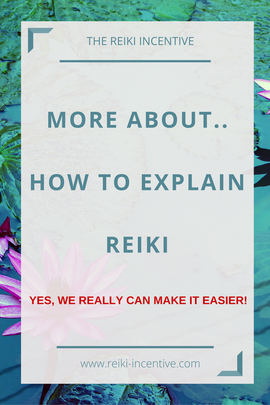
There has been quite a lot of discussion in the Facebook group recently about just how difficult it is to explain Reiki to others.
People who have never experienced Reiki can be quite skeptical or disbelieving. Sometimes those who have heard of Reiki might not be clear about what it really is. It cropped up in conversation for me recently with one lady who said she knew all about Reiki, although she actually thought it was more to do with Tarot reading. Explaining can be a minefield. Partly because it is based on Eastern traditions and values, which don't immediately translate well in a Western culture, and partly because Reiki practice is so diverse – what one person understands as Reiki may have nothing to do with how you or I might understand it. We are all different. I was sad to hear in the group that one lady had experienced people being rude to her. Actually, on reflection, I have too. It can be hurtful and dis-empowering. So it is timely this month that I share with you my recent experience of some training in this area. I had the very great pleasure of attending a workshop in Edinburgh with Pamela Miles, of Reiki in Medicine. I don't live too near Edinburgh, but since I am in the UK and Pamela is based in New York I felt I had to take the opportunity to go and see her speak live. It was just a shame that I had a very trying few days just prior to the workshop and arrived there feeling like a wet rag and far too tired to chat! But never mind. For those who don't know Pamela's work yet, she is a Reiki Master of international standing who has worked with, and introduced Reiki into medical settings in New York. She has also written peer reviewed Reiki papers and been involved in Reiki research. What a pioneer! The workshop covered Pamela's Four Step Balance System for Communicating Reiki to Anyone. Of course, having worked alongside medics throughout her career and having therefore encouraged some of the most skeptical people around to work with Reiki, she has a lot to say about this which is really well worth hearing. I can't share the whole of Pamela's workshop here, it is not mine to share, but I am happy to share some tips which resonated with me and which support, perhaps in different words, some of the suggestions I made in my blog post in June where we looked at my Top 5 Strategies for explaining Reiki. Perhaps one of the key things when sharing Reiki is to remember that it is an Eastern spiritual practice, rather than simply a treatment modality (which of course is one aspect of it). People uninitiated with the system, or spiritual matters in general perhaps might not need to be given a lot of information, up front, about Reiki energy or distance healing or anything else that can seem so far out to our rational Western minds. James Deacon suggests the same, that we perhaps might think about avoiding describing Reiki as an energy healing method with new people and see how this works for us. After all, science cannot yet see or measure the subtle energy field. Our experience tells us that there is one of course, and we make sense of this experience by describing it in the best way we can. We can however free ourselves of the need to explain Reiki. We can simply say that Reiki is, to use Pamela's words, a “transformational spiritual practice”. Another way of describing it might be that it is a Japanese self care and wellness practice which one can use or learn as a way of taking care of ourselves, much like one might learn meditation or yoga. This is a particularly useful one if we are also teachers of Reiki. It reminds us that in order to master Reiki, it is something that we ourselves should be making use of and practicing daily in our own lives. It also starts new clients off with an understanding that Reiki is not a magic bullet for the treatment of specific illnesses in isolation, but rather a lifetime practice which they too can learn. We can do this by:
We can journal our experiences. That way, we have a record of just how far we are moving and growing. This can be illuminating to look back on. We can also:
In addition to the huge personal benefits that this will provide, it also allows us to anchor our treatments and teaching in personal practice, a deep personal experience and conviction. As well as embodying Reiki, we will also find it a much easier topic to share, when we can speak from our own authentic experience. Then, when asked how Reiki works, we are free to say perhaps that science does not yet know. Science can't yet explain it. It is experiential rather than scientific. It can be experienced and the best way to understand it is to experience a treatment. A treatment brings a deep state of relaxation, which is facilitated through light touch. If asked, we can then go on to explain that a treatment is therefore balancing to our mind, body and spirit. It is our quiet time where we can re-set our internal regulatory mechanisms and begin to steer ourselves towards balance. We can also reassure our potential clients that Reiki is safe. Clinical trials to date have not shown there to be any ill effects. There is a small, but growing body of evidence which does suggest that Reiki has beneficial physical and psychological effects. If you are interested in knowing more about research into the benefits of Reiki check out some of the posts below. You can watch a recording of Pamela's training here. I also have a free guide to explaining Reiki to others. It's available below. Some people have found it handy to keep on their phone as an aide memoir. 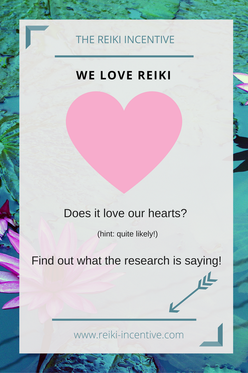
We've seen that psychologically, Reiki seems to reduce our feelings of anxiety and stress. But there is less research which measures our physiological response to the therapy. Perhaps common sense and an understanding that the mind and the body are intimately interconnected might already tell us that if we feel psychologically better then there must, by definition, be some positive physiological changes taking place as well. Well, here is some Reiki research as food for thought... 2008 (1) Knowing that Reiki had been shown to lower heart rate and blood pressure in a small group of people, scientists in the US decided to research this benefit using laboratory rats. Whatever your feeling about the use of lab rats, it is true to say that using them to test a treatment such as Reiki does have some real advantages. When we study Reiki in humans, it is a challenge to determine and measure the true effect of Reiki and differentiate that effect that from the real and positive effects which come from having any treatment, often caused by a positive expectation of having the treatment, the time and attention of the therapist etc. These are non-specific effects sometimes referred to as placebo effects. Critics of Reiki can be quick to dismiss any benefits Reiki may offer as “just placebo”, but more on this in a future post. For now, back to our lab rats.. Scientists from the University of Arizona, having access to laboratory facilities, compared the effectiveness of both Reiki and sham/pretend Reiki in reducing the heart rate and blood pressure of stressed rats. Three unrestrained rats, fitted with humane and highly accurate monitoring devices were exposed to 15 minutes of white noise daily for 8 days. This was something that had been shown previously to increase their heart rate and blood pressure. For the last five days of this regime, the rats received 15 minutes of Reiki before and during this exposure. This was conducted again, on the same rats, using pretend Reiki. What the scientists found was that real Reiki (but not pretend Reiki) was effective in reducing the heart rates of pre-stressed rats. Those rats with the highest heart rates showed a greater reduction in heart rate, pointing towards a homoeostatic effect. When the rats were treated with Reiki both before and during the noise they showed no increase in heart rate as a result of the noise. In other words, they found that Reiki had a modulating homoeostatic effect. They concluded that these results supported the use of Reiki as a stress reducing therapy for humans. Neither Reiki or sham Reiki significantly affected blood pressure however. This was a small study which used a short duration of Reiki treatment. Like all research, its results pose as many questions as they answer. It is safe to conclude that the findings support further study into this area. (For reassurance, the rats were housed well, in an interesting and playful environment, with fellow rats for company and with access to fresh food and water as desired. They had a dedicated animal caretaker and all procedures were overseen by the University’s animal care committee.) 2010 (2) Research reported in the American Journal of Cardiology: Clinical researchers from the Cardiology Department at Yale University studied the effect of Reiki on heart rate variability (HRV). HRV is the variation in the time taken between each heartbeat. It is a small measurement of the difference in time taken from one beat to the next. Variations are normal and a high variability is a good indicator of health. Stress, anxiety and poor health can lead to low variability which can indicate cardiac risk. Following heart attack, a low heart rate variability can predict a poor outcome. For this reason, the clinicians at Yale decided to test whether Reiki would improve the heart rate variability of their in-patients recovering from Acute Coronary Syndrome (ACS – a medical emergency where blood to the heart is stopped or reduced, perhaps due to heart attack or similar disorder). They conducted a randomised controlled trial which compared the effects of Reiki, Rest and Relaxing Music on HRV. 12 people were randomised to receive Reiki, 12 to continue to rest and 13 to listen to restful music. It was found that average HRV improved significantly from baseline in the Reiki group, an effect not seen in the other two groups. The research also found that the Reiki group saw greater improvements in self-reported positive emotions and reductions in stress, frustration, fear and anxiety than those in the other groups. This was only a small trial, however the clinicians concluded that further research is needed to evaluate Reiki as a potential long-term approach to improving prognosis following ACS. 2014 (3) A larger trial conducted in Brazil which compared Reiki, sham Reiki and rest showed that real Reiki lowered problematic high blood pressure more than sham Reiki or rest. The effect shown by Reiki was both clinically and statistically significant. It is interesting to note that both the above clinical trials showed Reiki to be superior to sham or placebo Reiki. If you would like to know more about Reiki research sign up for my occasional newsletter using the box below. When I post something new I'll let you know.
References:
1. Baldwin, A.L., Wagers, C. Schwartz, G.E. (2008) Reiki Improves Heart Rate Homeostasis in Laboratory Rats. The Journal of Alternative and Complementary Medicine. 14 (4) 417 – 422. 2. Friedman, R.S.C. (et. al.) (2010) Effects of Reiki on Autonomic Activity Early After Acute Coronary Syndrome. Journal of the American College of Cardiology. 56 (12) 995 – 999. 3. Salles, L.F. et. al. (2014) The effect of Reiki on blood hypertension. Acta Paul Enferm. 27 (5) 479 – 84. 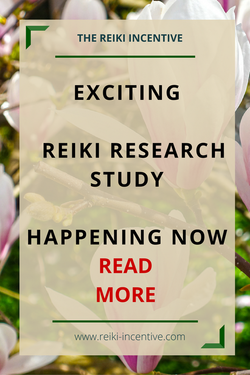
I was really interested to read recently about what seems to be a very large observational study which is currently being conducted by the Centre for Reiki Research in the US. The purpose of the study is to measure the effectiveness of Reiki sessions in terms of their effect on:
The study began in March 2015 and to date, there are 82 Reiki practitioners involved, all members of the Reiki Membership Association. From what I can understand from the Center for Reiki Research website, it would seem that Reiki recipients are recruited into the study directly by each Reiki practitioner at his or her practice. Both before and after their Reiki sessions, those who participate answer some questions about their symptoms and how they feel, anonymously, by completing an online questionnaire. This practice mirrors some of the larger observational studies I have seen conducted in the health service here in the UK. Part of the data collection involves participants completing a list of questions which make up the PANAS Schedule (Positive and Negative Affect Schedule). This is what is known as a “validated” outcome measure. This means that it has been shown to accurately capture valid information about positive and negative moods. It would seem that the research has had formal independent ethical approval, via Harvard University. As well as being a sign that the research is ethical this usually indicates that it is also likely to be well designed. Many ethics committees will view poorly designed research as unethical. So far, data from over 1200 sessions has been recorded. The study is aiming to gather information from 2000 sessions in total. It is anticipated that the research will be completed some time in early 2017 after which the data will be analysed by PhD qualified Reiki researchers. In March this year, a preliminary analysis of the available data indicated positive results on all the outcomes measured. These positive results were shown to be “statistically significant” which means that the positive results shown in the data were unlikely to be as a result of chance. Great eh! The Center for Reiki Research states: “The results of the study will demonstrate in what way and to what extent Reiki is helpful in the categories studied. This information will be available to practitioners to guide their use of Reiki. It could also be used in the design of future Reiki studies.” It is certainly an exciting study. Its size is a particular strength, as is the fact that some of the data being collected is via the use of a known and validated outcome measure. The anonymous collection of data should help reduce any bias in the results which might have been created by the recipient wishing to please their practitioner. The next step for this research will be for the researchers to thoroughly analyse the data and prepare a report for publication in a reputable “peer reviewed” journal. “Peer review” simply refers to the process that new research papers go through. A written report will be circulated to one or two research experts for comment and questions before the final version is accepted for publication. This ensures that it has been conducted and reported properly. If you would like to know more sign up using the box below. I'll let you know when something new is posted. And don't worry, your email is safe and I won't bother you with anything else. 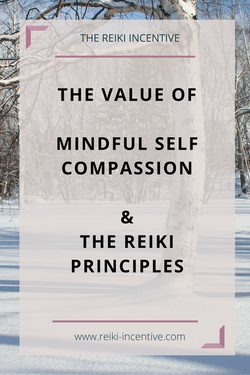
Anyone trained in Reiki will be familiar with the five Reiki precepts or principles. According to Reiki historian Don Beckett, the only piece of writing known to have been written by Mikao Usui is a scrap of paper which contains the Reiki principles, written in Japanese Kanji. They are the most important aspect of the reiki system. Many people who have received Reiki training in the past have simply been given a list of the Reiki principles with very little instruction or education with regards to their use and meaning. That was certainly true for me and many people I know who trained in Reiki, before seekers such as Dave King, Frank Arjava Petter and Chris Marsh went in search of the origins of Reiki in Japan. Deceptively simple and brief, the principles are both an overall description of the state of invited happiness and wellness that Reiki students sought, and also a list of individual instructions which when used and considered together form the way or the path towards peace, happiness, fulfillment and healing. They are the way of Usui, the mainstay of the system. Of course there are various different versions of the principles. This is because there are different possible translations of Japanese kanji. In addition, the interpretation of the princilpes will also depend greatly on the level of spiritual understanding of the translator. There is a deep and hidden meaning in them. A path to healing and ancient wisdom. There is no right or wrong with regards to which version of the principles you decide to use for your practice. The most important thing is that you consider them, and that your understanding of them grows with your practice. You may find that as your understanding of Reiki grows you switch from one version to another, or you might do away with the need for written versions altogether, recognising instead that they all describe different aspects of what are essentially the same principles. One working definition which sits well with me is as follows: The secret art of inviting happiness The miraculous medicine of all diseases: Just for today... Do not anger, Do not worry, Be grateful, Be honest (in your dealings with yourself and others), Be compassionate towards yourself and others In every morning and evening join your hand in prayer, pray these words to your heart and chant these works with your mouth. Usui Reiki Treatment for Improvement of body and mind. The Founder, Usui Mikao The secret, or hidden meaning behind the reiki principles is hinted at by the words "Just for today". Here Usui is inviting his students to be present, to be in the current moment. To reside with awareness in each moment as it passes, moment by moment. In other words to practice mindfulness. Mindfulness has become quite a buzz word in recent years, almost the “latest new thing” in both orthodox and complementary healthcare circles. That may be because people become very enthusiastic about it when they begin to uncover its potential. Techniques and skills associated with mindfulness can be found in many ancient religions and spiritual traditions, most notably Buddhism. A part pf ancient meditation techniques, mindfulness has historically been referred to in older texts using terms such as awareness, self awareness, being awake, watching the self and knowing the self. The term “mindfulness” was coined by Jon Kabat-Zinn who founded the Stress Reduction Clinic at the University of Massachusetts Medical School in the late 1970's. Jon has been intrumental in bringing meditation into western healthcare systems with his hugely effective and well researched Mindfulness Based Stress Reduction Programme. He states: "mindfulness means paying attention in a particular way; on purpose, in the present moment, and non judgmentally."
Whilst in a mindful state, Usui's students would reflect on, and also attempt to live by or embody Usui's five precepts.
Each precept is an individual guideline, whilst the precepts written together as a whole describe a way of being, a spiritual state of integrity where worry, anger, dishonesty, ingratitude and unkindness cannot exist. They describe a pathway to healing and happiness, each one integral to the other. This can only be understood when experienced. How do you work with the Reiki precepts? My preferred way is to perform the Japanese Reiki meditation Hatsurei Ho mindfully and during this, when calm and aware, I recite and consider the precepts, perhaps sometimes reflecting on how each one applies to me and what I am experiencing each day. This is the way the principles are considered in Japan, in the Usui Reiki Ryoho Gakkai. The Hatsurei Ho meditation brings together, and adds to two of the meditative energy exercises that Usui was known to teach his students at first degree. You can download a free mp3 version of my guided Hatsurei Ho and Reiki principle meditation here, or at the end of this article. Self-compassion, the fifth principle Self-compassion and the practice of mindfulness are interlinked, overlapping practices. It is important to be compassionate towards oneself in order to practice mindfulness meditation. A key element of the practice is to be aware of our thoughts, non-judgementally. It is hard to do this without an element of self-compassion. Similarly, we cannot truly be compassionate towards ourselves if we don't also have a mindful awareness of the emotional or physical stress or distress we may be suffering. Self compassion involves treating yourself with the same care, kindness, gentleness, sympathy and compassion as you would give to a loved friend. It is more common however for us to treat ourselves with criticism and harsh judgement. We can damn ourselves for our imperfections rather than recognising that to be imperfect is human and is something we share with every other human being on this planet. Mindful self-compassion helps us to develop emotional resilience and well-being. We become aware of any negative emotions and then neither suppress them or ruminate on them. If we just let them be with kindness and soften our resistance to them then they can trouble us so much less. Studies have shown that mindful self-compassion can make us more positive in our relationships. It can enhance our motivation and can support us in taking positive directions in life, whether they be a new health routine or a new career. It gives us a safety net where we accept and acknowledge our weaknesses and positively work around them or change them constructively and without criticism. We don't become as stressed and frustrated when we can't or don't meet our goals. We become less afraid of failure and more likely to pick ourselves up and try a new direction, all of which can lead us to a more fulfilling life. It enhances both our physical and emotional well-being. It is becoming more and more understood that mindfulness and self-compassion affect how we react, respond and relate to emotional distress. Clinical research has shown that those who lack awareness of their suffering and distress and who lack self-compassion are often those who come off the worst when going through anything stressful or traumatic. So don't neglect the Reiki principles. As part of our work with Reiki we benefit not only from treatments and self-treatments, but also from meditation and working with the precepts. This is the work which takes us on our own healing journey towards a greater state of awareness, stillness and wholeness. It enhances our ability to be with and to treat others. As Reiki teachers, it helps us to guide our students along the same path. But it is not an easy journey. It is a journey of commitment. Commitment to the mastery of reiki and mastery of ourselves. You can explore this more deeply in my guided Hatsurei Ho and Reiki Principle meditation which you can download by clicking the image below.
If you are interested in learning more about mindfulness meditation there is an excellent FREE course available here.
I would like to acknowledge Dr Kristin Neff whose extensive work on the development of mindful self compassion practices and the clinical research she has done looking at the effectiveness of them has greatly informed this article. There are several excellent guided self compassion meditations available on her website. Sources: Dahm, K., Meyer, E. C., Neff, K. D., Kimbrel, N. A., Gulliver, S. B., & Morissette, S. B (2015). Mindfulness, self-compassion, posttraumatic stress disorder symptoms, and functional disability in U.S. Iraq and Afghanistan war veterans. Journal of Traumatic Stress, (ahead-of-print), 1-5. Albertson, E. R., Neff, K. D., & Dill-Shackleford, K. E. (2014). Self-Compassion and Body Dissatisfaction in Women: A Randomized Controlled Trial of a Brief Meditation Intervention. Mindfulness, 1-11. Neff, K.D. & Dahm, K. (2014) Self Compassion: What it is, What it does and how it relates to mindfulness (pp. 121 – 140). In: Robinson, B. Meier & B. Ostafin (Eds.) Mindfulness and Self-Regulation. New York: Springer. Neff, K.D. & Tirch,D. (2013) Self Compassion and ACT. In T. B. Kashdan, J. Ciarrochi (Eds.) , Mindfulness, acceptance, and positive psychology: The seven foundations of well-being (pp. 78-106). Oakland, CA US: Context Press/New Harbinger Publications. 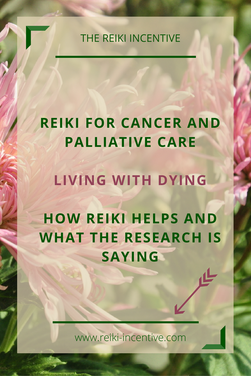
Writing about the potential benefits of Reiki in palliative care has been an interesting and enlightening journey. The original focus of this article was to examine the “evidence” for the benefits of Reiki in terms of what is often medically considered to be sound evidence (such as that from randomised controlled trials). I found some of this, but I also found much wider and more profound sources of information and wisdom. Let me share… I was extremely interested to read a piece of qualitative research (1) which explored the lived experience of a group of people living with advanced cancer, or as the authors' put it “living with dying”. Qualitative research is a particular type of research which involves the researcher developing a relationship with the people they are researching and, in this case through discussion and interview, exploring and understanding deeply just what their experience is like for them and what it means to them. When considering how and if Reiki can benefit people facing this, taking a look at what the experience means to people in that situation and what support they might need seemed like the best starting point. Unsurprisingly, the research documented the negative effects of advanced cancer on the emotional well-being of the people in the study. Anxiety, stress and depression were seen in addition to the physical symptoms such as pain, fatigue and discomfort. What the paper also showed was that the participants needed to make sense of their new reality and to adjust to it. Finding meaning in the situation helped to reduce the emotional distress. Facing the reality of dying was seen as an existential threat that prompted the need to reconsider ones relationship with life and with the nature of time itself. There were reports of intense “present moment” experiences. Perhaps the biggest challenge of all, it was also seen to hold the potential, like all challenges in life, to be something which ultimately led to personal growth, peace and enhanced psychological well-being in the time left. Most definitely then an emotional, psychological and spiritual challenge as well as a physical one. Spirituality, in the field of palliative care, has been defined as: “the aspect of humanity that refers to the way individuals seek and express meaning and purpose, and the way they experience their connectedness to the moment, to self, to others, to nature and to the significant or sacred.”(3) In 2014, a report was published which evaluated the benefits of an integrative Reiki service for patients with cancer in an academic medical cancer centre in the US (4). This programme was provided by volunteer Reiki practitioners and had been running since 2008. As part of the its evaluation, data was collected which measured participants' levels of distress, anxiety, pain, depression and fatigue both before and after Reiki. It was reported that patients experienced a 50% or greater reduction in the severity of all these factors. These were reported as being both clinically meaningful and statistically significant. If a result is “statistically significant” this means that statistical tests have shown that the benefits are unlikely to have been caused by chance and are therefore more likely to be real effects of the therapy. An overwhelming majority of the patients in this evaluation stated that they enjoyed the Reiki sessions, found them beneficial, planned to use Reiki again and would recommend it to others. Importantly, the evaluation also collected qualitative data by asking participants an open question where they were free to describe their experiences in their own words. Whilst Reiki practitioners gave out the surveys, they were handed in anonymously to other staff, to avoid the possibility of bias. The written responses (175 of them) were analysed using “content analysis” The descriptions that people gave of their experiences fitted into the following themes: “Relaxation and peace: The most common words used to describe the feelings evoked during a Reiki session were “relaxed,” “relaxation,” and “relaxing.” Patients also expressed feelings of peacefulness, warmth, and calm. Symptom relief: Patients described relief from both psychological and physical symptoms, such as anxiety, stress, fatigue, muscle tension, stiffness, and pain. They often described this relief as being simultaneously psychological and physiological (not distinguishing between mind and body). Physiological response: Several patients wrote about how the Reiki sessions lowered their blood pressure or reduced their heart rate, perhaps a physical indication of the relaxation response. Sense of connection: Some patients wrote about how the Reiki session produced a sense of connection with others (such as deceased relatives) or with their own authentic emotions, prompting a profound feeling of well-being. Positive thinking and sense of healing: There were a number of participants who credited the Reiki sessions with providing a sense of healing and helping them to think positively about their body’s capacity for healing. Freedom and release: A few participants felt that Reiki allowed them to be emotionally vulnerable and to experience a sense of freedom by alleviating the burden of their diagnosis.” I think that these responses show just how deeply healing Reiki can be, on all levels – physical, emotional, mental and spiritual. I am sure we all recognise them and it is wonderful to see them so eloquently articulated in a published study. The authors of the report felt that their evaluation provided good initial evidence of the potential of Reiki to help fulfil the unmet spiritual and physical needs of some cancer patients, by providing an enhanced experience of human connection and caring, promoting deep relaxation, symptom relief as well as enhancing a sense of healing, positivity and connectedness to others and the deeper self. It seems then that there is clearly a match between what some patients facing advanced cancer or palliative care might need and the benefits Reiki can offer. In the UK, NICE guidance (2) on the improvement of supportive palliative care services states that patients should be offered a range of physical, emotional, spiritual and social support in addition to services which enable people to manage the after effects of advanced cancer themselves. In 2010, in light of this, a clinical team in Canada set up a volunteer complementary therapy programme within a 15 bed in-patient palliative care unit north of Toronto (3). Volunteer therapists were recruited in 2010 to provide massage, Reiki and therapeutic touch to patients. The effects of this were evaluated by way of a patient questionnaire which was given after one or two sessions. 86% of patients received complementary therapy interventions and 69% of the sessions had included some level of psycho-spiritual support. The evaluation showed that pain, anxiety, low mood, restlessness and discomfort were all eased whilst inner stillness, peace and comfort were all increased. The volunteer therapists were included in multi-disciplinary team meetings where they could raise concerns about any particular patient who had, for example, expressed emotional, psychological or other distress. Their contributions were respected and valued by the clinical team and the holistic dimension of the therapies was appreciated by patients, clinicians and managers alike. It was reported that the programme was regarded by patients and families as essential. There is certainly a demand for Reiki amongst cancer patients. Reports (3) have stated that up to a third of cancer patients seek out complementary therapy and this demand continues to rise, whilst the attitudes of doctors and others in the medical professions generally are slowly changing from “scepticism and frank antagonism in some cases (3)” more towards cooperation and co-existence. Many in the medical world however seek evidence from clinical trials to back up the effectiveness of a therapy before they will really consider it to be of use. Writing for the American Journal of Hospice and Palliative Medicine in 2015, Ashley Henneghan and Rosa Schnyer (5) completed a focussed literature review which looked for this kind evidence base for the use of energy therapies like Reiki in palliative care. They did not find any published trials which specifically related to palliative care, but there were quite a few papers which looked at the benefits of Reiki and similar energy therapies (Therapeutic Touch and Healing Touch) in relation to some of the specific symptoms which are very relevant to palliative and end of life care. They concluded that the evidence supports the use of energy therapies in relieving pain, improving quality of life and well-being and in reducing symptoms of stress. In 2008, a Cochrane review (6) was published which looked at the value of energy touch therapies for pain relief in adults. It concluded that they reduced pain levels in the trials examined, potentially over and above any placebo element and that Reiki was the most promising energy touch treatment. A more recent systematic review looking specifically at Reiki, conducted in 2014 by Kumar et al. (7) also concluded that Reiki may have value in the management of pain. Also in 2014, a literature review concluded that Reiki holds potential in the reduction of both pain and anxiety, as discussed in my post on 12thMay 2016 (8). Way back in 2003, a small clinical trial (9) was conducted which compared the effects of Reiki in addition to standard medical treatment for patients with advanced cancer against rest with standard treatment. It was a small trial, but it concluded that the addition of Reiki improved both pain control and quality of life for those people who received it, over and above the benefits received by the group who simply rested. In 2011, a larger trial with 118 patients was reported which examined the use of Reiki in a cancer infusion and day centre. Improvements in well-being, relaxation, pain relief, sleep quality and anxiety were shown (10). Whilst this all sounds very positive, it must also be remembered that the trials which have been conducted so far are comparatively small ones, and many are not reported well enough for some to accept as valid. We can say however that there is early indicative research which shows the benefits of Reiki in these areas. There is clearly enough evidence to persuade many cancer centres to introduce services for patients, even if many are still provided by volunteer practitioners. In the UK, NICE guidance³ on the improvement of supportive palliative care services acknowledges that the level of evidence required for complementary therapies which aim to relieve rather than cure does not need to be as stringent as it would be for curative, invasive or pharmcologic treatments. They do encourage those who provide Reiki in cancer and palliative settings to contribute to the evaluation of their effectiveness, much in the way that was done by the two teams mentioned above. It is an ongoing journey for Reiki. More research and evaluation needs to be done, and will be done. I think what my journey has shown me is that we need more than just data from clinical trials to demonstrate just how Reiki helps. Qualitative data which shares peoples lived experiences is vital as well as other forms of research such as case studies and service evaluations. In different ways we are all part of the Reiki journey and there are opportunities to join the conversation and make a difference. But believe me, I totally understand the fears of many Reiki practitioners when it comes to research. Some worry that because the treatment is aimed at the recipients highest good, not at a single measurable outcome that research might not be able to capture the benefit. Others worry that somehow the research might show that Reiki doesn’t work, what then? Have no fear. Research is being done and it is starting to show some positive outcomes. If you would like to know more sign up for updates using the box below. I'll let you know when a new post is published and don't worry, your email address will be quite safe.
References:
1. Willig, C. (2015). "My Bus Is Here": A Phenomenological Exploration of "Living With-Dying". Health Psychology, 34(4), pp. 417-425. doi: 10.1037/hea0000176 ONLINE: http://openaccess.city.ac.uk/11639/ [Last Accessed 21/07/2016]. 2. NICE (2004) Guidance on Cancer Services: Improving Supportive and Palliative Care for Adults with Cancer, The Manual. ONLINE: https://www.nice.org.uk/guidance/csg4/resources/improving-supportive-and-palliative-care-for-adults-with-cancer-773375005 [Last Accessed 21/07/2016]. 3. Berger, L. et al. (2013) A Canadian Experience of Integrating Complementary Therapy in a Hospital Palliative Care Unit. Journal of Palliative Medicine, 16 (10). 4. Fleisher, K.A. et. al. (2014) Integrative Reiki for Cancer Patients: A Programme Evaluation, Integrative Cancer Therapies, Vol. 13(1) 62 –67 5. Henneghan, A. M. & Schyner, R. N. (2015) Biofield Therapies for Symptom Management in Palliative and End-of-Life Care. American Journal of Hospice and Palliative Medicine, vol. 32, no. 1, p. 90-100, 1049-9091 (February 2015). 6. So, P.S. et al. (2012) Touch therapies for pain relief in adults (Review). The Cochrane Library. 2012 Issue 8. 7. Kumar, S.P. et. al. (2014) Efficacy of Therapeutic Touch and Reiki for Pain Relief in Disease Conditions: A Systematic Review, Journal of Psychiatric Nursing, 3 (1) 1 – 40. 8. Thrane, S. & Cohen, S.M. (2014), Effect of Reiki Therapy on Pain and Anxiety in Adults: An In-Depth Literature review of randomized Trials with Effect Size Calculations. Pain Management Nursing, 15(4) pp 897 – 908. 9. Olsen, K. Hansen, J. Michaud, M. (2003) A Phase II Trial of Reiki in the Management of Pain in Advanced Cancer Patients, Journal of Pain and Symptom Management, 26 (5) 10. Birocco, N. et.al. (2011) The Effects of Reiki Therapy on Pain and Anxiety in Patients Attending a Day Oncology and Infusion Services Unit, American Journal of Hospice & Palliative Medicine® 00(0) 1-5 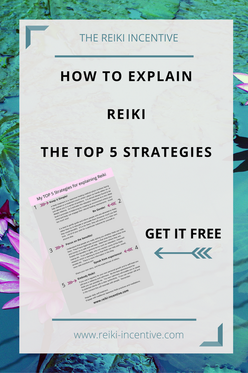
Many Reiki practitioners (new and experienced) would like to feel much more confident and comfortable when starting up a conversation to explain reiki healing with someone new. After all, whilst we know how wonderful and helpful it can be, there is no denying that it can be a real challenge to overcome the perceptions of others. This is not really surprising. Reiki is a tradition which originates in the mystical and spiritual practices of the East. Many of its secrets may not have been openly discussed in the past and might perhaps have been revealed slowly to students as their experience and knowledge developed. According to Reiki historians, Reiki began first and foremost as a spiritual practice and way of self healing. It can be a particular challenge in the West to try to explain the fundamentals of Reiki healing from scratch to a Western audience in a society that values the logical and scientific. Quite often an individual approach is needed, depending on each person's attitudes, values, preconceptions and previous level of knowledge. It is therefore quite a good idea to begin with a question, such as:
You can then tailor your response depending on the answers you receive and also dispel any misconceptions or misunderstandings that they might have. With new people, it can often be a good idea to steer away from anything that might be considered as too “out there” or “woo”. Practitioners often have a fear of being perceived in this way and there is also the concern that too much detail too soon can frighten or turn new people away. James Deacon has a fantastic approach to explaining Reiki healing. He steers away completely from referring to “energy” with clients until they have experienced a treatment and it is clear that they want to know more. He begins with: “Reiki healing is a set of 'received skills' which permit the therapist to assist individuals to relax in a very particular way, enabling their body (/mind/spirit) to access and activate its own, powerful, inherent, self healing mechanisms” So, my TOP 5 Strategies to explain Reiki healing credibly are: 1. Open the conversation simply: Reiki healing is a Japanese method which involves laying fully clothed on a treatment couch whilst I place my hands either on, or just above you in a series of positions. It is almost always found to be deeply relaxing. As it activates the relaxation response at a very deep level it promotes re-balancing by creating an environment where your mind and body can begin to heal themselves. Reiki is -
Reiki is not-
Adapted from “Reiki for Dummies” by Nina L. Paul Reiki is experiential. The best way to understand it is to try it. You could offer potential clients a short free treatment or demonstration. I have given Reiki to new clients for as little as 5 minutes and they have been able to discern the likely effects from this. 2. Be gentle: It is best to gently guide and inform people who are attracted to Reiki, rather than try to educate or persuade them (however much you feel they would benefit!). If it is for them, they will come to it in their own time. Let go of your wish for a particular outcome for yourself or anyone else. 3. Focus on the benefits (and manage expectations): Understand that people are really asking you whether Reiki can help them. They'll have legitimate concerns that what they spend their time and money on is safe and will help. Meet them where they are. If you feel confident to, focus on some of the clinical research into the benefits of Reiki. Although most studies are small, some are beginning to show that Reiki healing might help to reduce pain, anxiety and depression, improve relaxation, feelings of well-being and motivation to look after oneself. When "selling" Reiki it is also helpful to remember to manage the expectations of your potential new client. Reiki healing is powerful, but it is not a magic bullet which can promise the cure of any specific illness. Paradoxically, a very real and serious part of it's healing potential is enhanced when both the practitioner and recipient can let go and set aside the wish for any particular outcome or intention. Instead, a focus on stopping, letting go and allowing the mind and body to relax and open enables the restoration of balance and harmony. This creates a space where new perspectives and possibilities can be seen - a deeper and truer healing that has the potential to reach the underlying issues and challenges faced by your recipient. Similarly, as Reiki helps people to relax deeply, in both mind and body it could be beneficial for the symptoms of any condition which is stress related. Relaxing the mind and body also enhances our ability to cope. Reiki is safe. Reviews of clinical trials into Reiki healing have so far not identified any ill effects, but it should NEVER be used as a replacement for medical treatment. 4. Speak from experience: Explain how Reiki works for you, how you became interested in it and why. Share any other benefits you feel are relevant, but be sure to mention that your knowledge of this stems from the experiences of yourself and others (and not through clinical research). 5. Embody Reiki! If you use it regularly for your own personal growth and to self-treat you will ooze a radiance and calmness. Be the best advertisement for Reiki you can possibly be. You own calmness will enable you to speak to potential clients with a clear authenticity. If you can remain still and in the moment this will resonate with people. Remember:
I don't think that any one of these strategies is any more important than the other, but together they can work very effectively indeed. I have an easy to follow download which summarises these points. Why not download it and keep it on your phone as an aide memoir? It's free. Have I missed anything? Do you have any questions, or are there other ways you explain reiki healing to your clients? Please let me know in the comments!
Related: How do I handle non-believers?
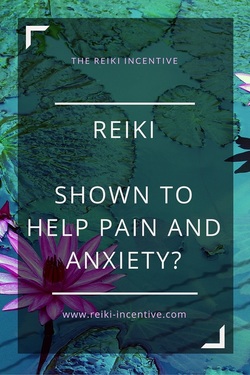
Hello again and welcome back. I was asked recently about what research studies have been conducted into the benefits of Reiki, and what the results were. Surprisingly, quite a lot of studies have been carried out. Although many of them are small scale studies they are still useful and of course it is still early days in the world of Reiki research. Interestingly repeated studies which have looked at Reiki in relation to pain and anxiety seem to indicate that these are areas where Reiki might well be showing a measurable positive effect. In 2014, a systematic review was published which sought to examine all the trials of Reiki for the relief of pain and anxiety which were published in the year 2000 or later. Although the number of trials found were limited (at least in comparison to trials of conventional treatments), the authors concluded that there is evidence to suggest that Reiki may be effective for reducing pain and symptoms of anxiety.¹ They therefore suggested that further research in the form of larger trials be conducted. These positive results are also supported by an earlier trial which was conducted in 1998 and therefore not included in the review.² A systematic review is a particular piece of research which is conducted using a specific set of rules. Its aim is to systematically seek out all the clinical trials which address a particular question. It then examines each study, assessing the way in which it was conducted, and considers the results of all the trials in order to come to a conclusion about whether a treatment or therapy is effective for that particular condition. In mainstream medicine, a systematic review is considered to be the most persuasive form of evidence. So a positive systematic review which indicates the potential of Reiki is quite a coup. This is a confidence boost. I know quite a few practitioners, particularly newer ones, often feel quite unsure about how Reiki will be perceived by others, or who question how effective they can be. I don’t think this means that as Reiki practitioners we should rush out and start making new claims about Reiki (just yet). As we know, Reiki is holistic and individual. As practitioners we don’t seek to treat individual conditions or symptoms, rather we seek to treat the whole person. We’re not health professionals trained to treat specific conditions (unless of course we’ve qualified to be), but we can claim to offer a supportive complementary holistic approach which can help people to heal in a wider sense and to cope more effectively with whatever they are facing. How great to know that there is also early but indicative research which shows that it also helps with any associated pain and anxiety. There will be more in my next posts, where I'll take a look at Reiki for depression and also Reiki in cancer care. Are you interested in learning more about research into Reiki? Why not sign up for updates using the box below. I'll let you know when I post anything new and your email address will be quite safe.
References:
1. Thrane, S. & Cohen, S.M. (2014), Effect of Reiki Therapy on Pain and Anxiety in Adults: An In-Depth Literature review of randomized Trials with Effect Size Calculations. Pain Management Nursing, 15(4) pp 897 – 908. 2. Dressin,L. J. & Singg, S. (1998), Effects of Reiki on pain and selected affective and personality variables of chronically ill patients. Subtle Energies and Energy Medicine, 9 (1):53-82. |
Author
Angela established the Reiki Incentive for Reiki practitioners who want to see Reiki more widely accepted and to see it reach new people. She enjoys sharing her passion for authentic practice as well as research into the benefits of this wonderful therapy. Archives
May 2018
Categories
All
|
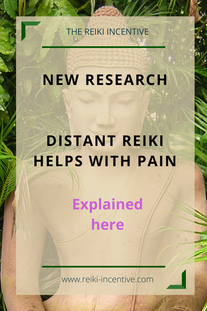
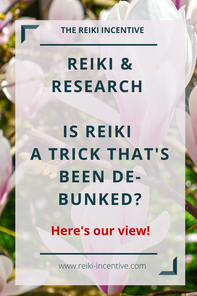
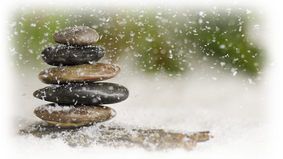


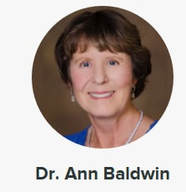
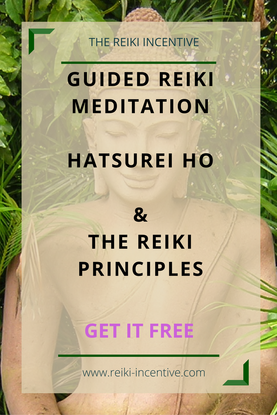

 RSS Feed
RSS Feed
